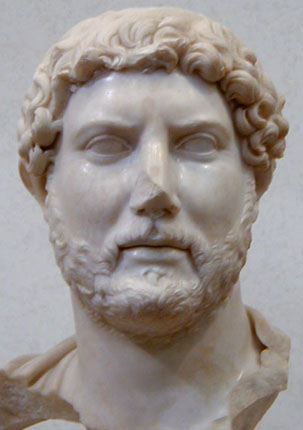 Our twenty-four hours in London (Wednesday, December 6-Thursday, December 7) had many highlights, including the "Holbein in England" exhibit at the Tate Britain, Clara's concert of Mendelssohn's Elijah at Westminster Cathedral, a brief stop at Persephone Books, and a brief but awe-inspiring visit to the graves of poets and monarchs at Westminster Abbey. But the first thing we did, after checking into our hotel in Bloomsbury, was to make a pilgrimage to the Elgin Marbles at the British Museum. I've wanted to see the Elgin Marbles since I was in college and fell in love with John Keats' "Ode on a Grecian Urn." That famous ode was inspired, in part, by Keats' viewing of the Elgin Marbles in 1816 at the invitation of his friend, the artist Benjamin Robert Haydon.
Our twenty-four hours in London (Wednesday, December 6-Thursday, December 7) had many highlights, including the "Holbein in England" exhibit at the Tate Britain, Clara's concert of Mendelssohn's Elijah at Westminster Cathedral, a brief stop at Persephone Books, and a brief but awe-inspiring visit to the graves of poets and monarchs at Westminster Abbey. But the first thing we did, after checking into our hotel in Bloomsbury, was to make a pilgrimage to the Elgin Marbles at the British Museum. I've wanted to see the Elgin Marbles since I was in college and fell in love with John Keats' "Ode on a Grecian Urn." That famous ode was inspired, in part, by Keats' viewing of the Elgin Marbles in 1816 at the invitation of his friend, the artist Benjamin Robert Haydon.Who are these coming to the sacrifice?
To what green altar, O mysterious priest,
Leadest thou that heifer lowing at the skies?
And all her silken flanks with garlands dest?
What little town by river or sea shore,
Or mountain-built with peaceful citadel,
Is emptied of folk, this pious morn?
And, little town, thy streets for evermore
Will silent be; and not a soul to tell
Why thou art desolate, can e'er return.

 The marbles were removed (some would say, looted) from the Parthenon in Athens by Lord Elgin in the early 1800s, when the Turks were occupying Greece. When the Greeks (with some minor romantic assistance from Lord Byron) achieved their independence, they pressed for the return of the marbles. But Britain passed a special Act of Parliament granting themselves ownership of the marbles in perpetuity. It was with mixed feelings that I admired those brilliant fifth-century Greek works of art in their English surroundings. The British were arrogant imperialists, but for the moment I (along with hundreds of primarily English, Spanish, and Japanese tourists) was selfishly happy for the opportunity to see the Parthenon sculptures in such a magnificent museum. I'm sure it would be possible to spend a year in London, and spend part of each day in the British Museum, and still not grow tired of it or exhaust the riches it has to offer.
The marbles were removed (some would say, looted) from the Parthenon in Athens by Lord Elgin in the early 1800s, when the Turks were occupying Greece. When the Greeks (with some minor romantic assistance from Lord Byron) achieved their independence, they pressed for the return of the marbles. But Britain passed a special Act of Parliament granting themselves ownership of the marbles in perpetuity. It was with mixed feelings that I admired those brilliant fifth-century Greek works of art in their English surroundings. The British were arrogant imperialists, but for the moment I (along with hundreds of primarily English, Spanish, and Japanese tourists) was selfishly happy for the opportunity to see the Parthenon sculptures in such a magnificent museum. I'm sure it would be possible to spend a year in London, and spend part of each day in the British Museum, and still not grow tired of it or exhaust the riches it has to offer.


No comments:
Post a Comment